ASEAN
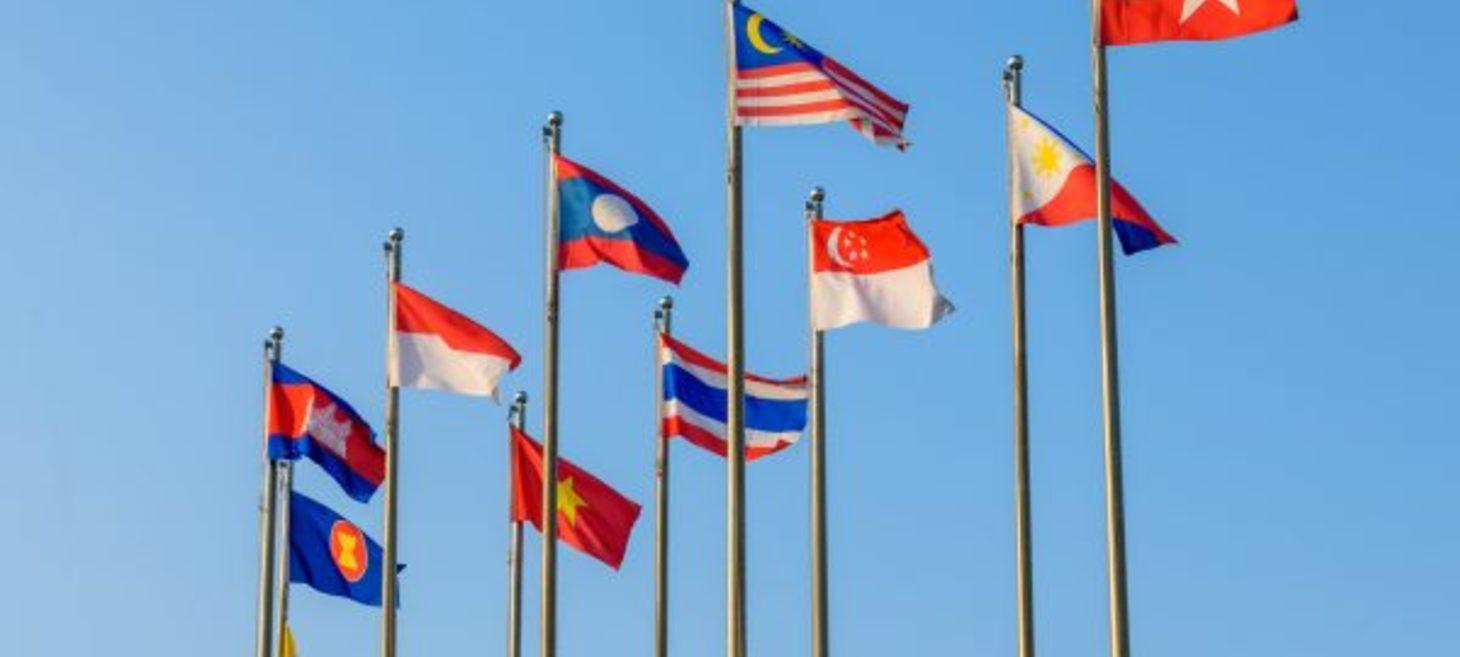
ASEAN Needs to Rethink Its Myanmar Strategy
ASEAN's current Myanmar strategy needs a major overhaul. Despite acknowledging the failure of its Five-Point Consensus, ASEAN continues to engage with the military junta, including inviting its foreign minister to upcoming meetings. This approach undermines ASEAN's credibility and widens its trust deficit with Myanmar communities. Instead of legitimizing the junta, ASEAN should focus on ramping up pressure to end human rights abuses and violations of international law. This could involve developing tangible consequences for junta actions, supporting sanctions, blocking weapons sales, and engaging directly with civil society groups and opposition figures. As ASEAN chair in 2025, Malaysia should lead this shift towards a more effective, people-centered approach that supports both punitive measures and diplomatic efforts from concerned governments.
Conflict
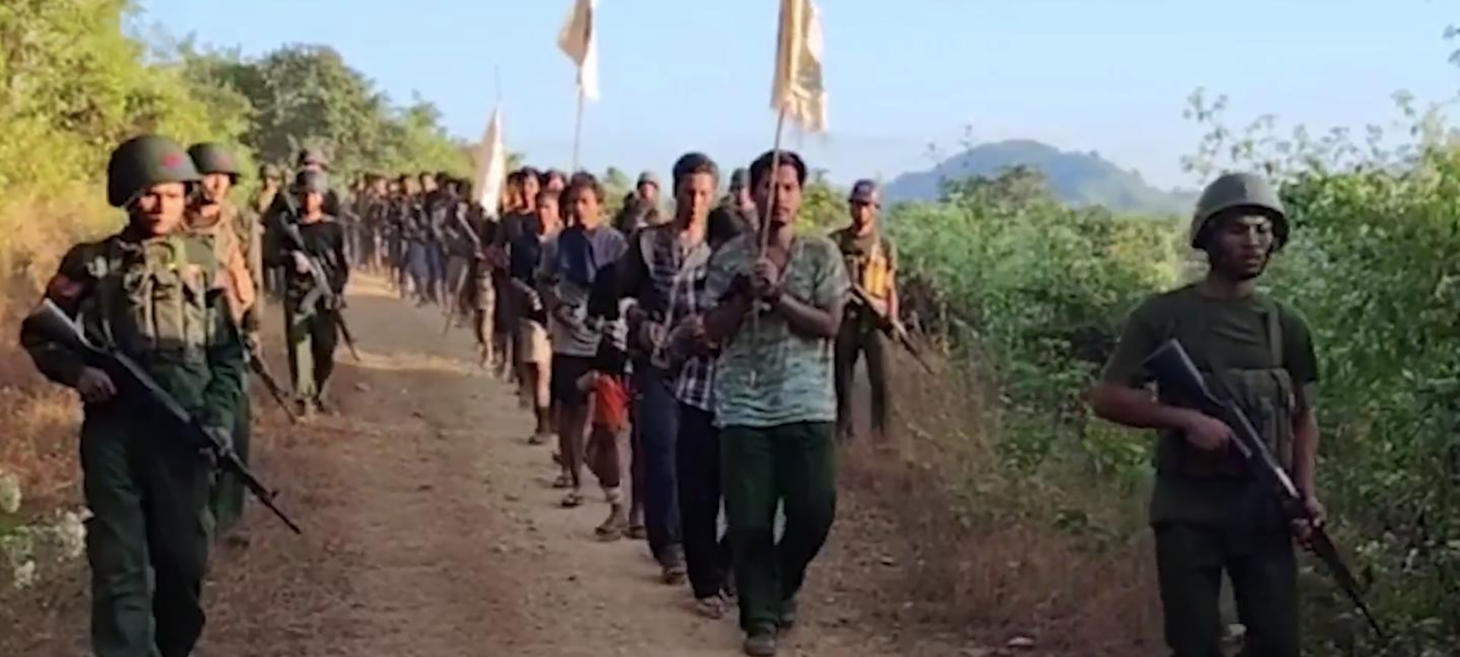
AA Urges Myanmar Junta Troops to Surrender as Western Command Burns
The Arakan Army (AA) has issued a call for Myanmar junta troops to surrender as the Western Command in Rakhine State burns, signaling a significant escalation in the ongoing conflict. The AA's offensive has led to the capture of several key military installations, including the Western Command headquarters in Ann Township, which was set ablaze during the fighting. This development comes amidst a broader push by the AA to dismantle the military junta's control over Rakhine State, urging soldiers to defect and join the resistance against the regime.
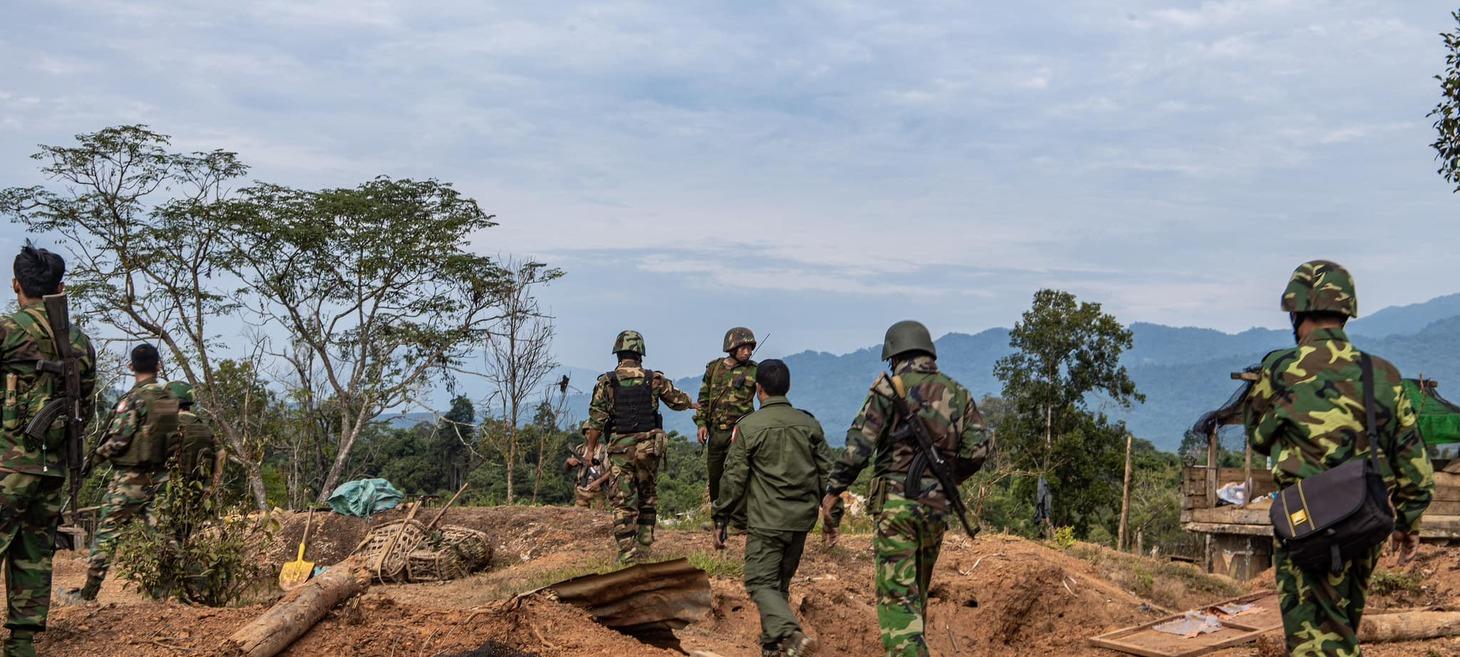
Kachin armed group battles Myanmar junta forces for control of Bhamo
The Kachin Independence Army (KIA) and allied forces, including the Kuki National Army, Kachin People's Defence Force, All Burma Student Defence Force (ABSDF), and the Gurkha Battalion, are battling the Myanmar junta for control of Bhamo, Kachin State’s second-largest town. Fighting intensified near Bhamo General Hospital, with the junta carrying out airstrikes in response to the KIA-led offensive. The KIA-led forces have gained control of most of the town, which is located about 25 miles west of the Chinese border. The clashes come days after Chinese officials reopened crossings on the China-Kachin State border, which had been closed for trade and travel since October.
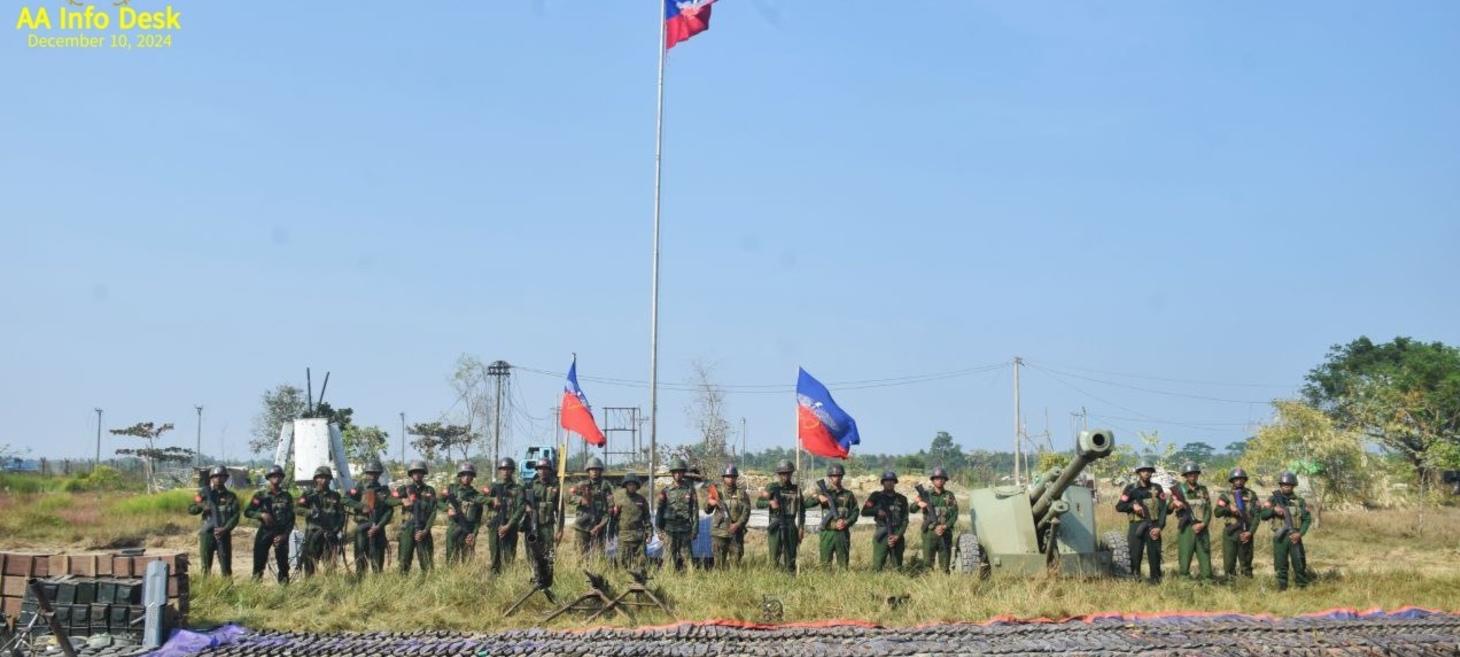
Arakan Army takes full control of Taungup as key Myanmar junta outpost falls
The Arakan Army (AA) has taken control of Taungup Township in Rakhine State after capturing the Military Operations Command 5 (MOC-5) headquarters on December 14. This victory gives the AA control of 12 out of 17 townships in Rakhine State, marking a significant territorial expansion for the armed group. The MOC-5 headquarters is a major command center overseeing several light infantry battalions in the area. Taungup is also a strategic location, connecting Yangon to Ann, a strategically important town in central Rakhine State. The AA’s spokesperson, Khaing Thukha, confirmed the capture to local news outlets.
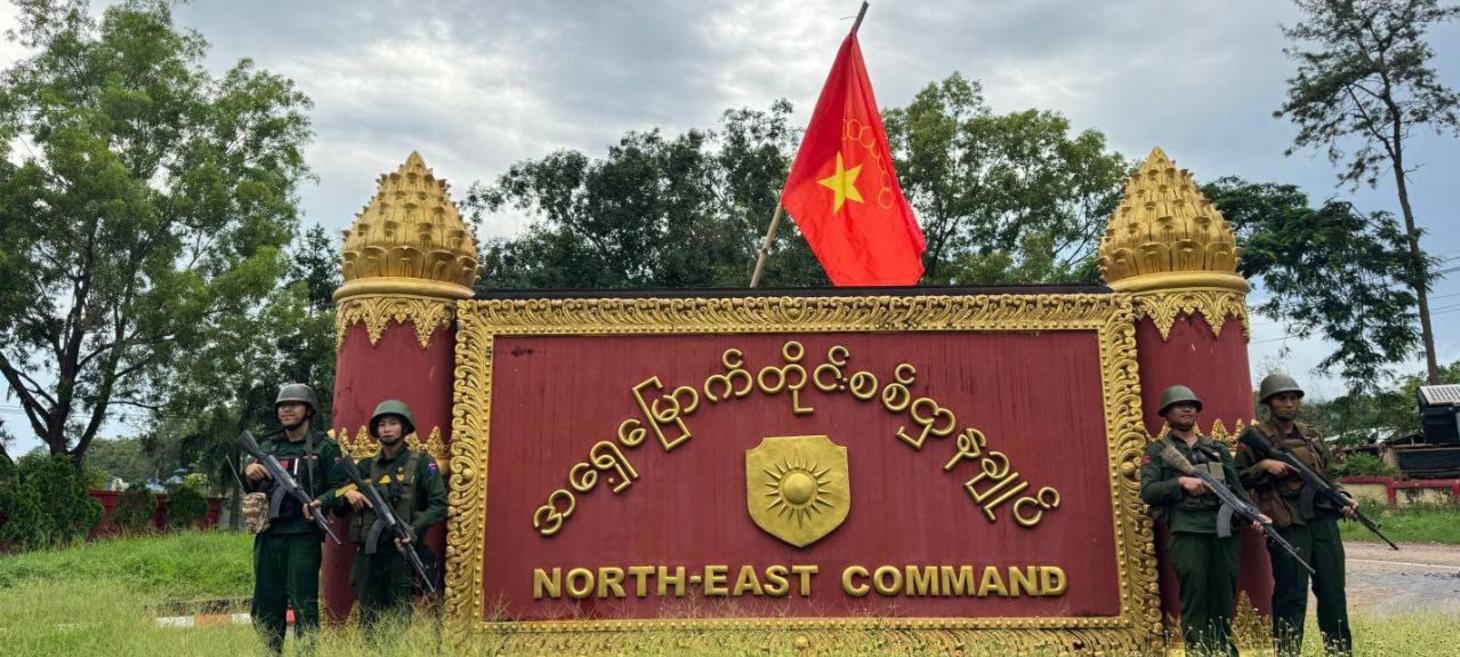
There’s no stopping the Myanmar junta’s downfall now
The fall of the Myanmar regime’s Northeastern Regional Military Command headquarters in Lashio in August signals the increasing weakness of the military dictatorship, suggesting a possible collapse. Lashio, a strategically and economically important city, is a major junction for China-Myanmar trade routes and holds historical significance as the terminus of the Burma Road during World War II. This victory follows a pattern of territorial losses for the junta, including the Arakan Army's (AA) recent capture of Taungup Township in Rakhine State, giving them control of 12 out of 17 townships. The junta's weakening grip on power is evident in the face of these significant defeats, indicating a potential turning point in the conflict.

Anti-junta forces take control of southern Chin State’s Mindat town
Anti-junta forces, known as the Chin Brothers, have taken control of Mindat town in southern Chin State after a month-long battle with the Myanmar military. The offensive, led by the Chinland Defense Force-Mindat (CDF-Mindat), involved overwhelming at least 10 junta outposts, including a police station. This victory for the Chin Brothers comes just months after they secured control of another strategic location. While the town is now under CDF-Mindat's control, fighting continues near a remaining enemy base. This success highlights the growing trend of anti-junta forces gaining ground against the Myanmar military, as seen in other regions like Rakhine and Kachin States. However, the conflict has resulted in the destruction of hundreds of homes in Mindat due to junta shelling, arson, and airstrikes.
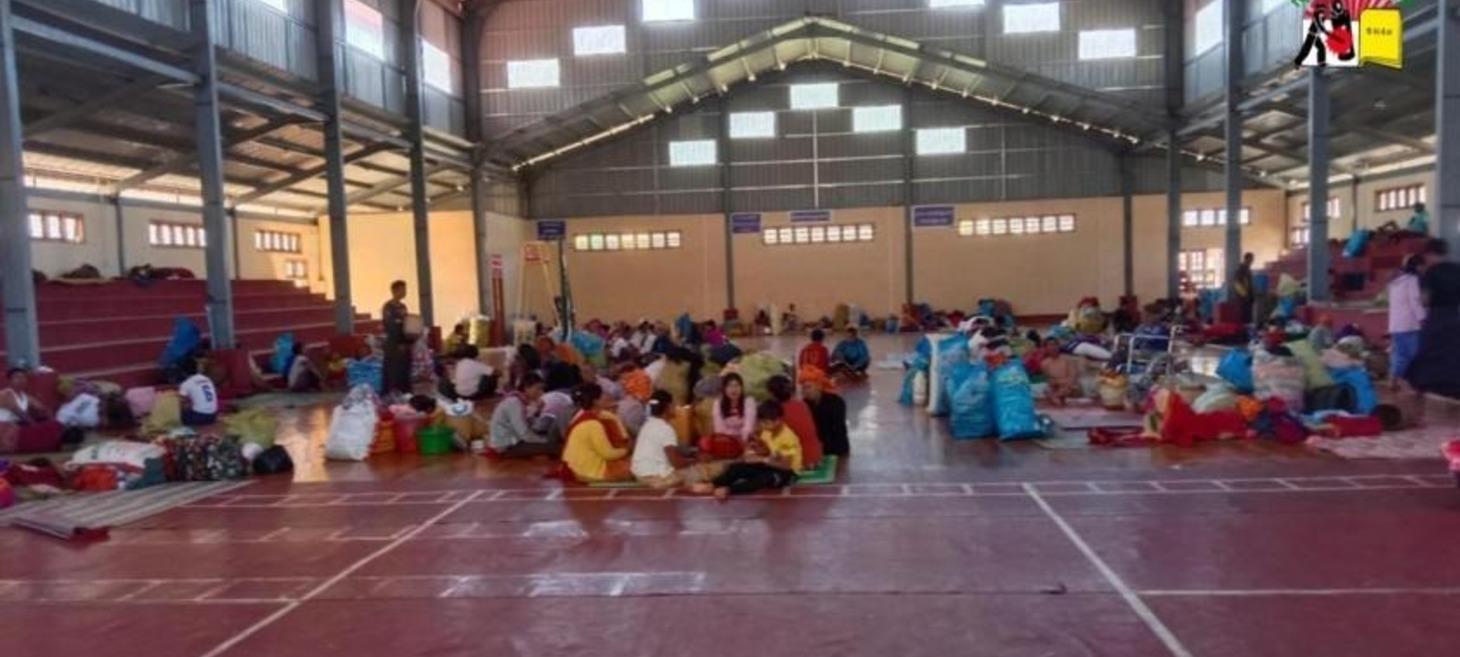
Villagers’ Vehicles Stolen Whilst They Are Forced to Be Human Shields
In a concerning incident in Paikhun Township, Shan State, villagers who were abducted by the junta and forced to serve as human shields had their vehicles and belongings stolen while they were detained. On November 11, 2024, junta troops entered the villages of Puchei and Konehson, abducting villagers and holding them in a stadium in Panglong Town. These villagers were only allowed to bring clothes and bedding. Upon their release at the end of November, they discovered that their vehicles, which had been left in a monastery compound, were missing, and some remaining vehicles had been drained of fuel. This incident underscores the junta's ongoing human rights abuses and the vulnerability of civilians in conflict zones. The theft of vehicles also highlights the economic hardship faced by communities in Shan State, which is already experiencing fuel shortages and restrictions on transportation due to the junta's policies, further impacting their livelihoods and daily lives. This situation aligns with the broader trend of the junta's weakening control and increasing reliance on oppressive tactics, as seen in other regions like Rakhine and Kachin States where they have faced significant territorial losses to anti-junta forces.
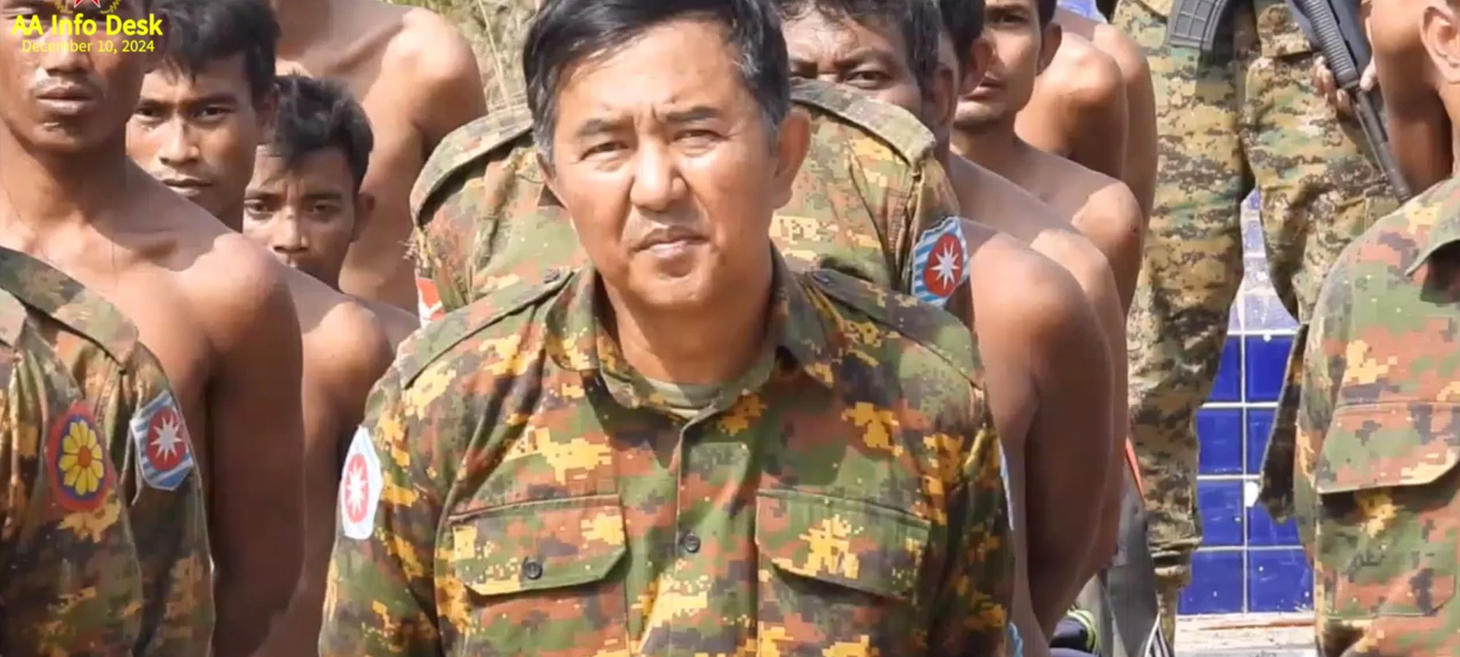
Junta General Captured in Rakhine Will Be Punished for War Crimes: AA
The Arakan Army (AA) captured Brigadier General Thurein Tun, the commander of the Myanmar junta’s 15th Military Operations Command (MOC), in Rakhine State. The AA seized the junta's Border Guard Police Battalion No. 5 in Maungdaw, a town on the Myanmar-Bangladesh border. Thurein Tun is accused of war crimes, including forcibly conscripting and arming Rohingya, inciting racial hatred, and shooting his own soldiers who attempted to surrender. The AA intends to investigate Thurein Tun and ensure he faces appropriate punishment for his crimes. This capture of a high-ranking junta official follows the AA's recent takeover of Taungup Township, giving them control over 12 out of 17 townships in Rakhine State. This victory further demonstrates the AA’s growing territorial control and the junta’s weakening grip on power in Rakhine State, aligning with the trend of anti-junta forces gaining ground across Myanmar, as seen in Kachin and Chin States.
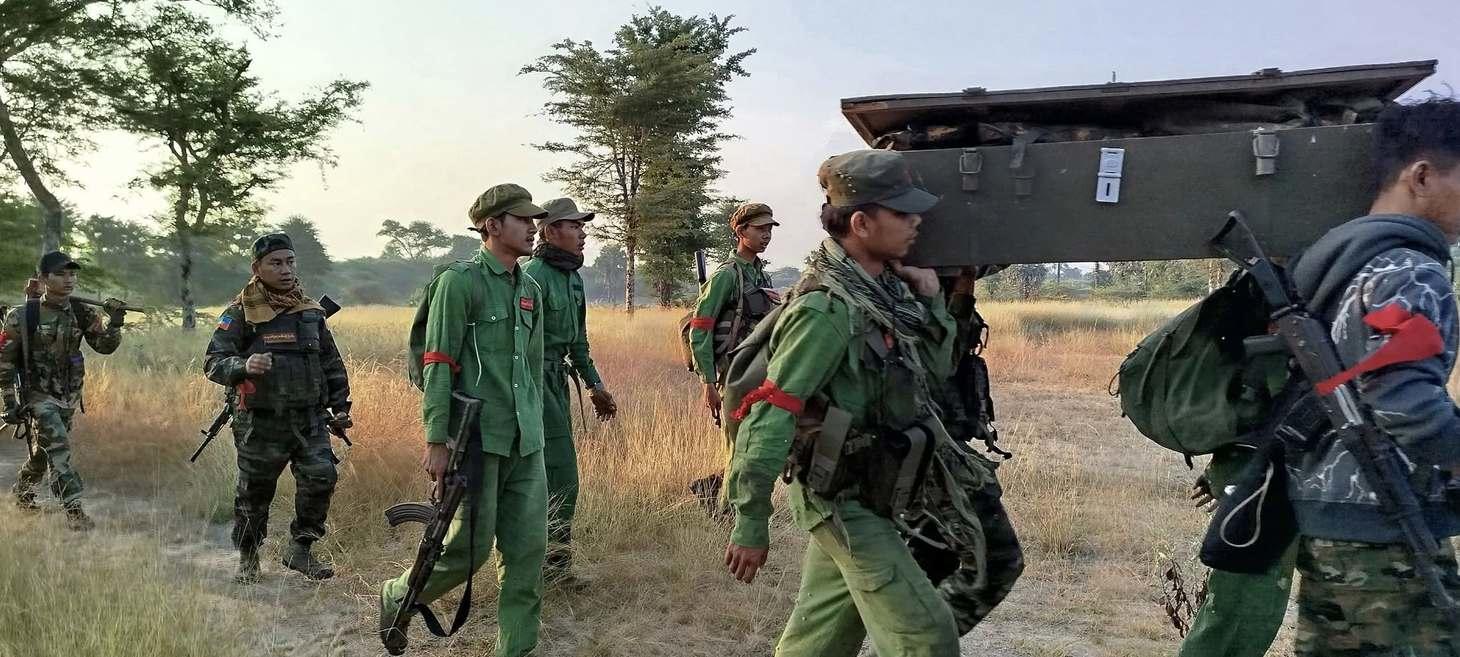
Resistance fighters capture pro-regime militia base camp in central Myanmar
Resistance groups in Myanmar, including the People’s Liberation Army (PLA) and Student Armed Forces, successfully captured a pro-military Pyu Saw Htee militia base camp in Pakokku Township, Magway Region on December 11, 2024. The resistance fighters launched their assault at 6 am and engaged in a battle that lasted over an hour. Although the junta provided air support to the militia, the resistance groups were able to overcome the fortified base, which was located on a monastery compound. Despite their victory, the resistance groups suffered the loss of two fighters due to airstrikes during the battle. This incident reflects the broader trend of escalating conflict between the junta and resistance forces in Myanmar, as evidenced by recent territorial gains made by anti-junta groups in regions such as Rakhine and Kachin States, as well as the junta's increasing reliance on oppressive tactics and airstrikes, resulting in civilian casualties and damage to infrastructure.
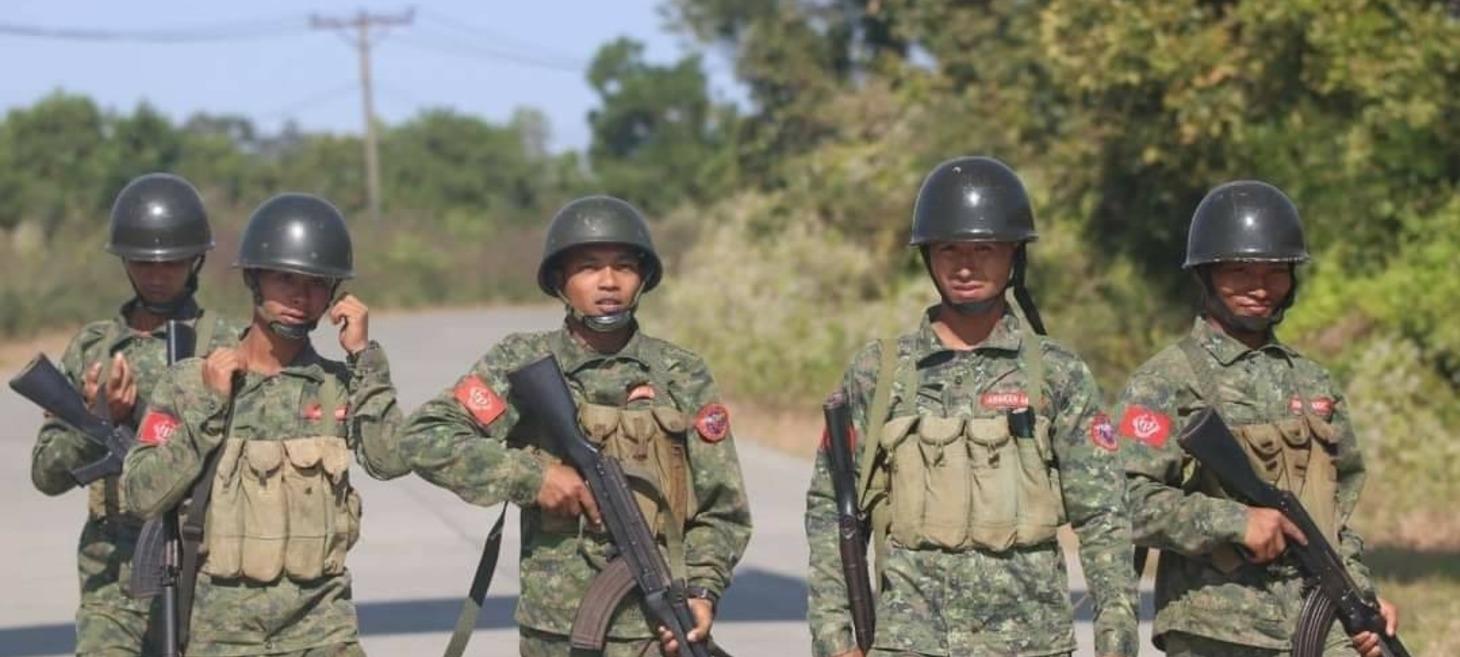
Clashes escalate in southern Rakhine State as AA moves to take strategic town
The Arakan Army (AA) is engaged in fierce clashes with the Myanmar junta in southern Rakhine State in an attempt to capture the strategic town of Gwa. Fighting erupted near the town's entrance in the villages of Ya Haing Ku Toet and Ya Haing Kwin, which serve as fortified defensive positions for the junta. The AA targeted junta positions, leading to prolonged shelling and gunfire throughout the night. Gwa's strategic importance lies in its location on a major route connecting Rakhine State and Ayeyarwady Region, making its capture a significant objective for the AA in their ongoing campaign to expand territorial control in Rakhine State. This offensive comes on the heels of the AA's recent capture of Taungup Township and the MOC-5 headquarters, giving them control over a significant portion of Rakhine State, highlighting the junta's weakening grip on power and the growing strength of anti-junta forces in the region.
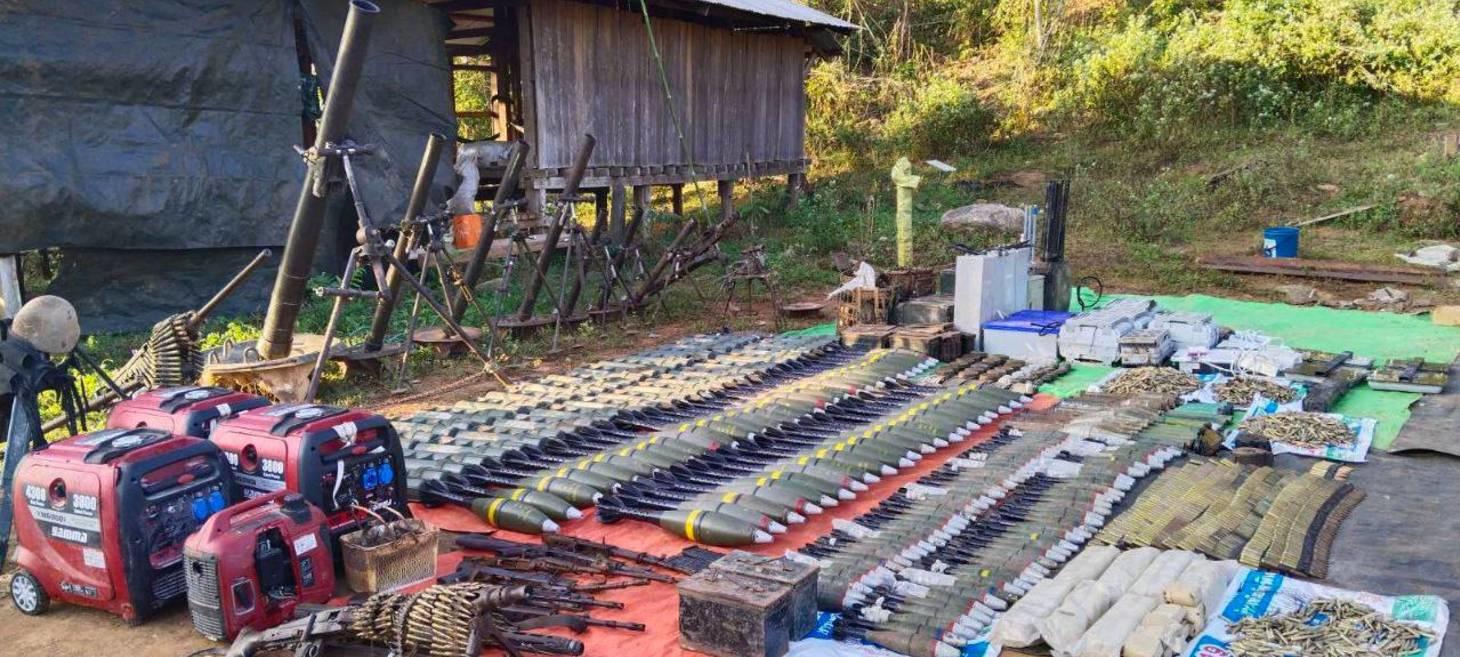
KNLA and allies destroy junta army base in Karen State
The Karen National Liberation Army (KNLA) and allied resistance forces, including the People's Defense Force (PDF), Bamar People's Liberation Army (BPLA), and a drone unit from the Force For Federal Democracy (FFD), successfully captured the strategically significant Taung Thone Lone junta base in Karen State on December 13, 2024. The operation, led by KNLA Brigade 5, began on December 4th and culminated in the base's capture early Wednesday morning. The victory resulted in multiple junta casualties, while the allied forces only suffered one casualty. This success aligns with the broader trend of anti-junta forces gaining ground against the Myanmar military, as evidenced by recent victories in other regions like Rakhine, Kachin, and Chin States. The junta's weakening grip on power is evident in the face of these significant defeats, suggesting a potential turning point in the conflict.
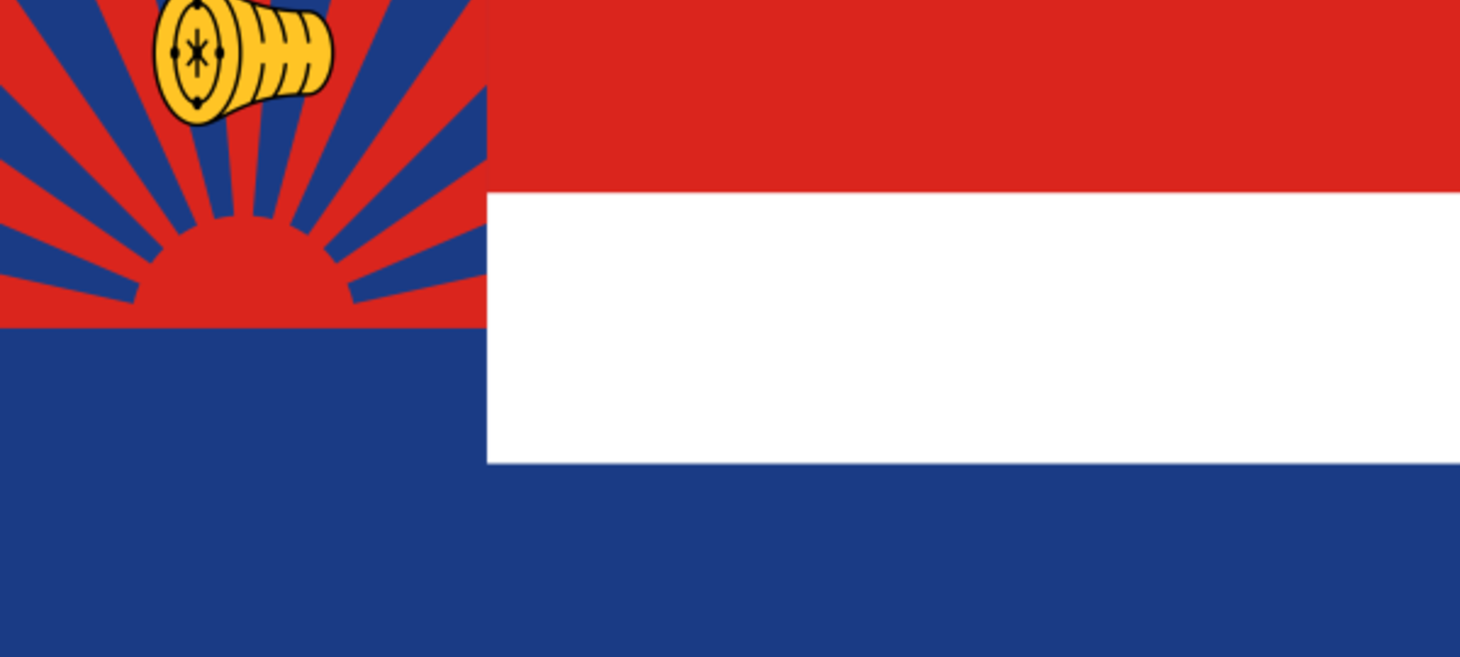
Myanmar Rebel Group Claims Recapture of Former Headquarters on Thai Border
The Karen National Union (KNU), an ethnic rebel group in Myanmar, has reclaimed its former headquarters in Manerplaw, a village on the Thai border in Kayin State, after nearly 30 years. The KNU's armed wing, the Karen National Liberation Army, seized the village on December 16, 2024, following intense fighting that resulted in significant casualties among junta troops and the capture of substantial weaponry. Manerplaw, established in 1975 as the proposed capital of an independent Karen state, fell to the Myanmar military in 1995 due to internal conflicts within the KNU. Since the 2021 military coup, the KNU has been a strong opponent of the junta, providing support and training to People's Defense Forces (PDFs) and other resistance groups. The recapture of Manerplaw adds to a series of resistance successes in 2024, including gains in Rakhine State and northern Shan State, further constricting the military administration's control over the country.
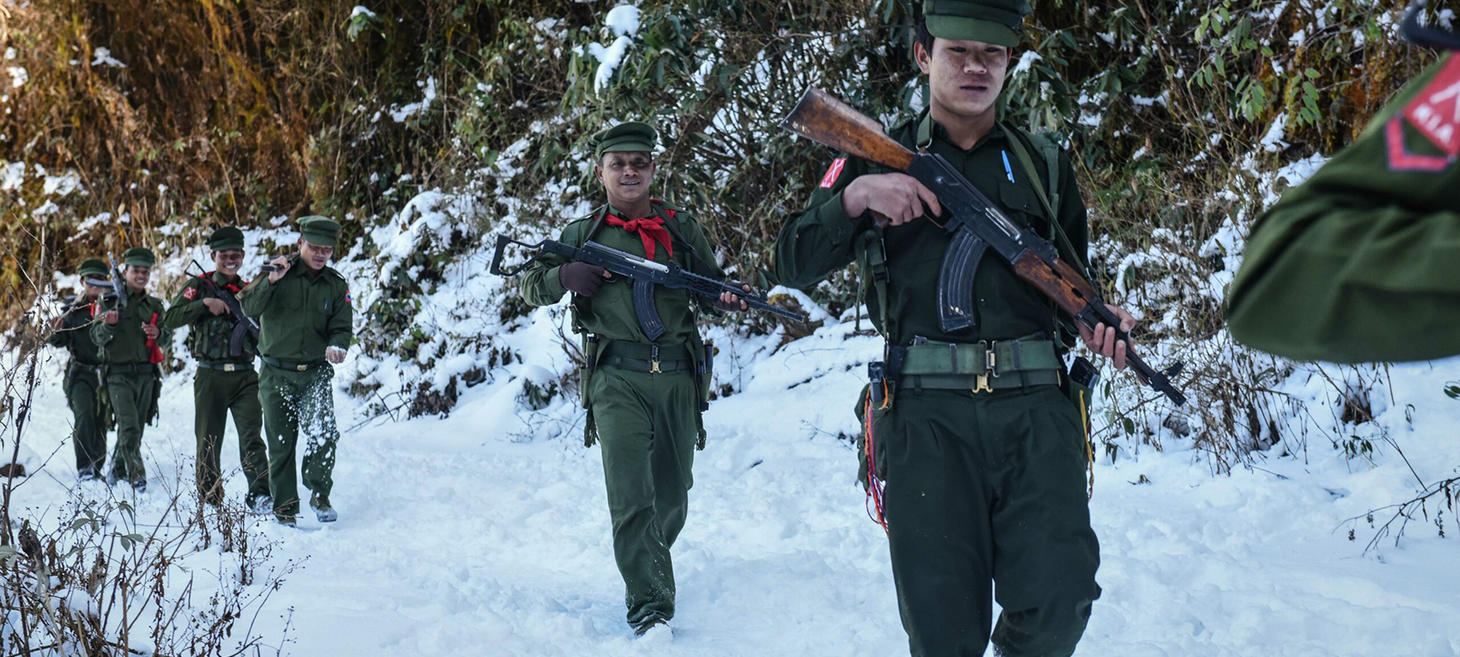
Ignoring Chinese Pressure, KIA Seizes Myanmar Junta-Allied Militia Outpost in Kachin
The Kachin Independence Army (KIA), a major ethnic armed group in Myanmar, has captured an outpost belonging to the pro-junta Shanni Nationalities Army (SNA) in Kachin State, despite pressure from China to avoid escalating conflict near its border. The operation, which took place in early December 2024, is part of the KIA’s broader campaign against the Myanmar military and its allied militias following the 2021 coup. The KIA's actions reflect its ongoing resistance to the junta and its efforts to expand control in northern Myanmar, even as China seeks to maintain stability in the region to protect its economic and strategic interests.
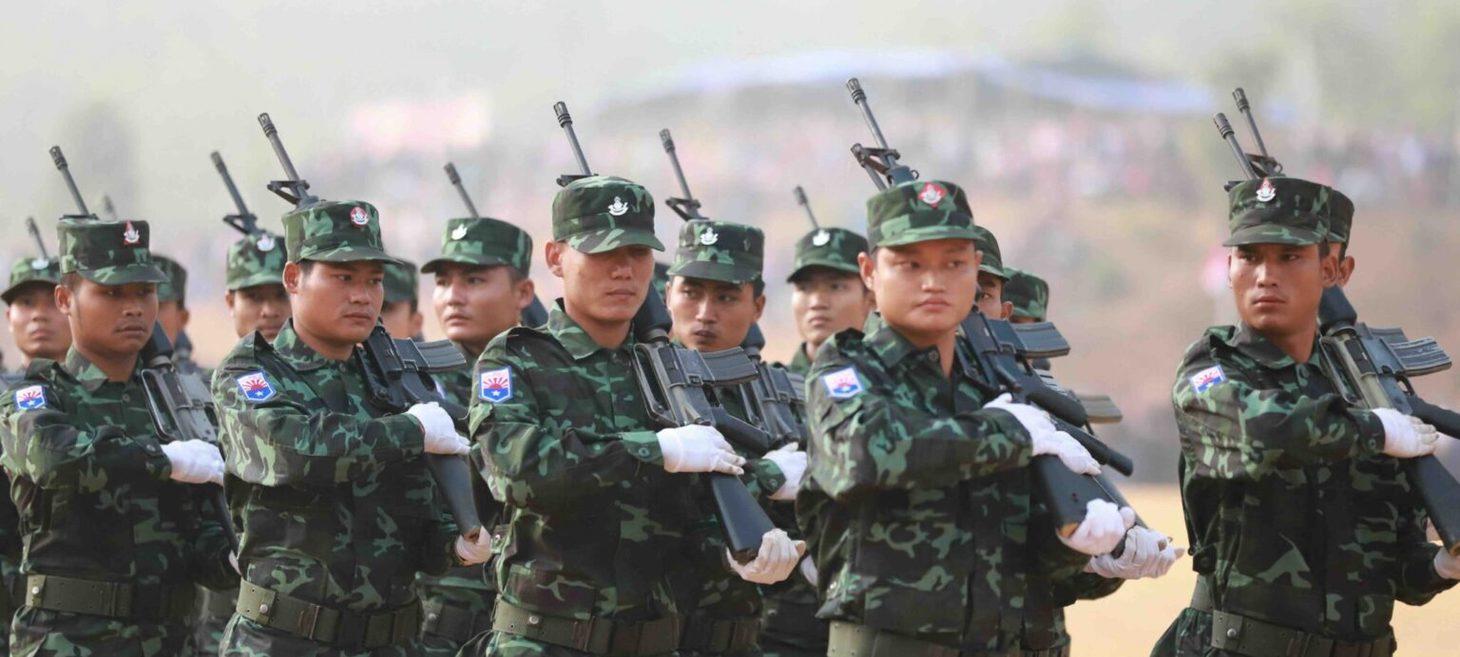
KNU says it has recaptured its former HQ after almost 30 years
The Karen National Union (KNU) has recaptured its former headquarters, Manerplaw, from the Myanmar military after nearly three decades. The KNU, which has been fighting for the rights of the Karen minority, retook the base on the Thai border following days of intense fighting. Despite the Myanmar regime's attempts to reclaim the area using drones and bombings, KNU forces successfully secured the base. Manerplaw was historically significant as the headquarters for the KNU's struggle and a refuge for dissident politicians. Its fall in 1995 to the junta and a breakaway Buddhist faction led to a mass exodus of thousands into Thailand.
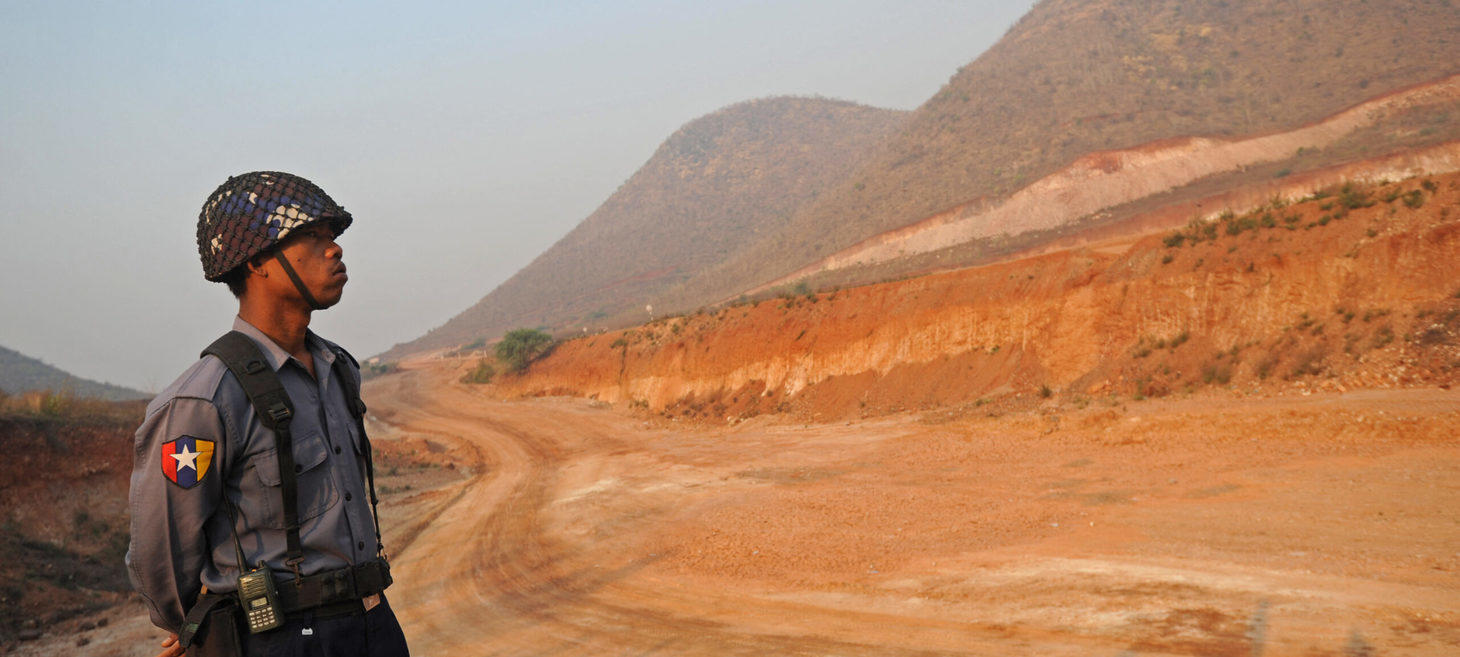
Resistance ambushes Myanmar army convoy near regional capital, Wanbao mining project
Anti-junta resistance forces ambushed a large Myanmar military convoy near Monywa, Sagaing Region, killing two soldiers and capturing five others. The attack involved around 50 vehicles, including fuel trucks, which triggered explosives set by resistance forces near Ma Au village. An exchange of small arms fire occurred, with at least one vehicle spinning out of control and falling into a ravine. This ambush took place close to project sites operated by Chinese company Wanbao Mining, highlighting ongoing resistance against military operations and foreign investments in the region.
Conscription
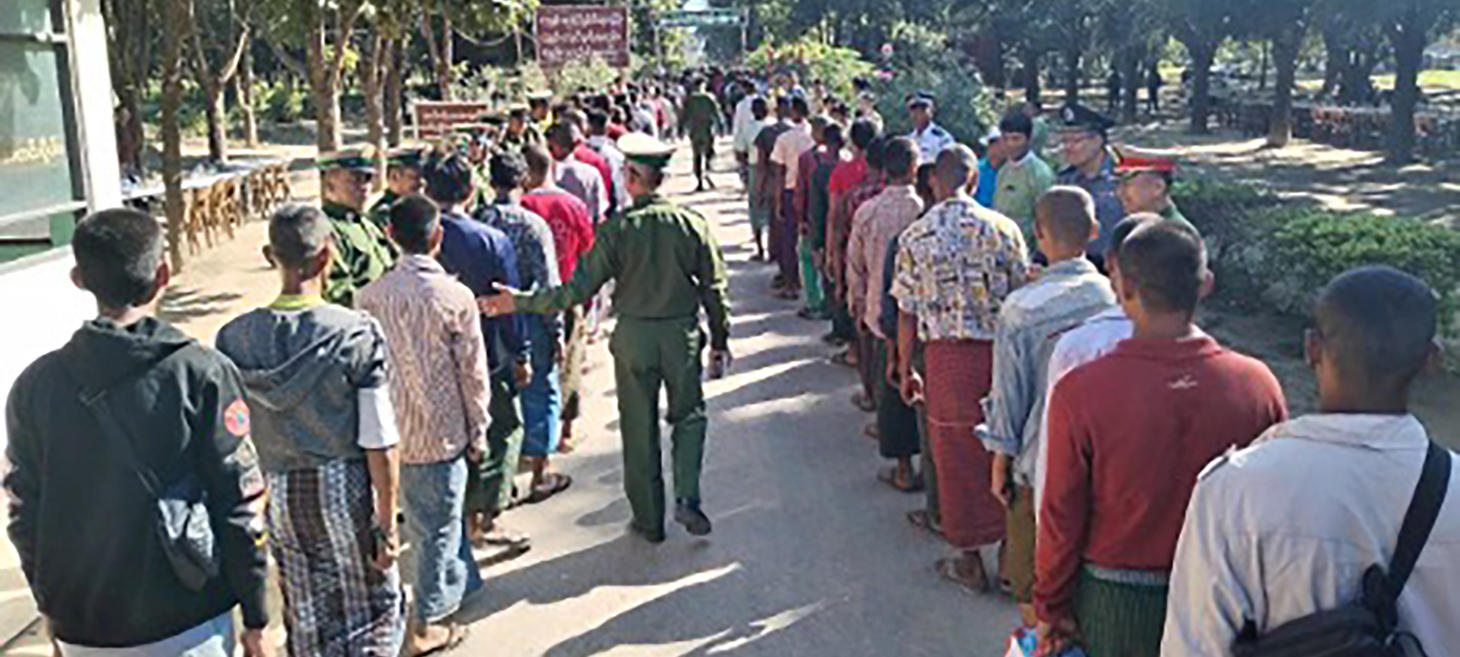
Yangon, Mandalay Deserted After Dark as Myanmar Junta Hunts for Conscripts
The streets of Yangon and Mandalay, Myanmar's major cities, have become eerily deserted after dark due to the military junta's aggressive conscription efforts. The junta has been forcibly recruiting young men into military service, leading to widespread fear and avoidance of public spaces at night. This situation has significantly altered the nightlife and social dynamics in these cities, with residents staying indoors to evade conscription patrols.
Crime & Narcotics

Myanmar Remains World’s Leading Source of Illegal Opium Cultivation
Despite a slight decrease in opium production, Myanmar remains the world's leading source of illegal opium cultivation in 2024. The UNODC reports that the area of opium poppy cultivation decreased by 4% from the previous year, attributing this to conflict and instability caused by the 2021 military coup. However, the UNODC warns that the ongoing conflict could lead to a further expansion of the opium trade in the coming years as instability and economic hardship drive farmers to cultivate opium poppy. The global shortage of opiates exacerbates this situation due to the ban on opium cultivation in Afghanistan, which could increase opium prices in Myanmar. The expansion of opium cultivation in non-traditional areas like Chin and Kayah states further underscores the UNODC's concerns. This development aligns with the broader trend of the junta's weakening grip on power, as evidenced by recent territorial losses to anti-junta forces in regions like Rakhine, Kachin, and Chin States.
Economy
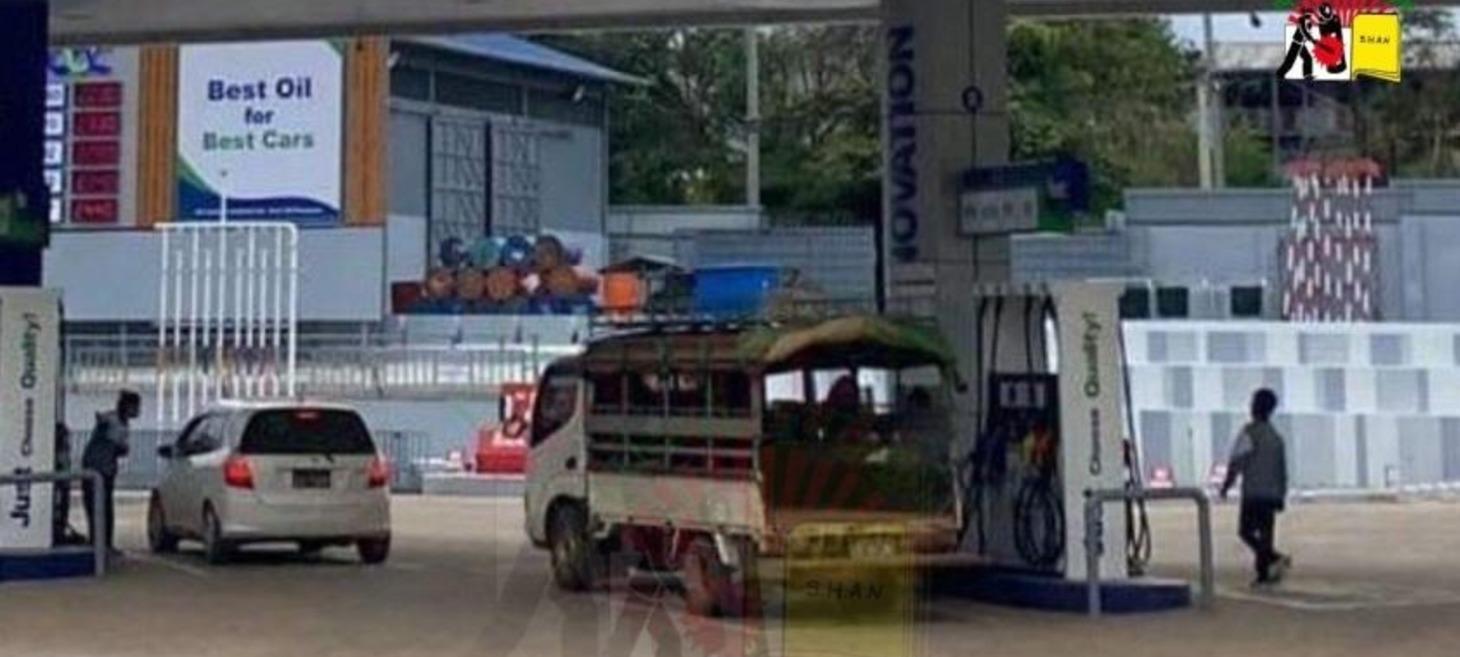
Fuel Shortages in Shan State
Fuel shortages are plaguing several towns in Shan State, Myanmar, due to the junta's restrictions on fuel tankers. The junta is preventing tankers from entering designated areas in southern and eastern Shan State unless they possess passes issued by junta-appointed tactical officers. This has led to shortages in towns like Mongnawng, Mong Hsu, Kyethi, Mong Kung, and Mongyai, severely impacting farming activities and forcing some businesses to halt operations. The fuel shortage has also affected the transport sector and is particularly impacting areas where the Shan State Progress Party/Shan State Army (SSPP/SSA) operates. Adding to the crisis, large petrol stations across Myanmar are facing operational challenges due to re-registration requirements and fuel quotas, leading to closures. Junta checkpoints are further restricting the flow of goods to northern Shan State, exacerbating the difficulties faced by the people. This situation in Shan State mirrors the broader trend of the junta's weakening grip on power, as evidenced by recent territorial losses to anti-junta forces in other regions like Rakhine and Kachin States.
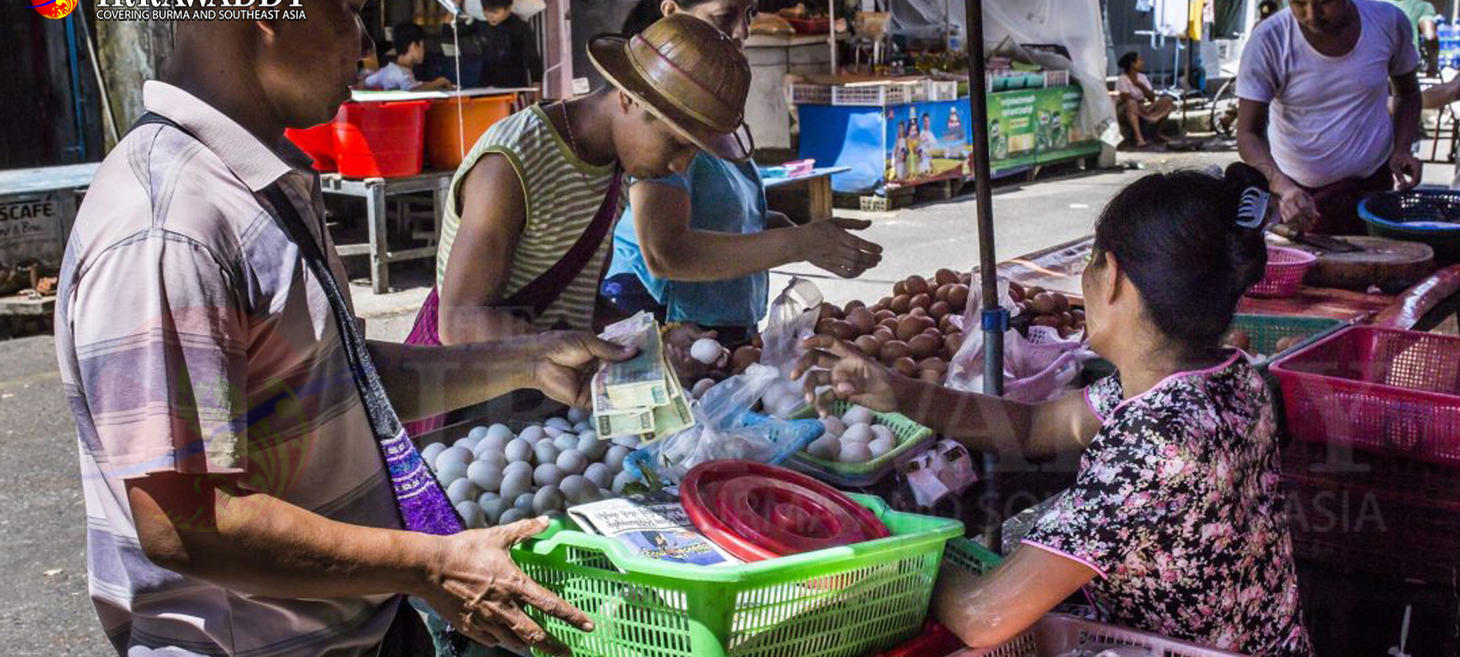
Myanmar Junta Expands Price Controls to Eggs, Meat and Fish
The Myanmar military junta has expanded its price control measures to include eggs, meat, and fish, aiming to stabilize the cost of essential food items amidst economic challenges. This decision follows previous controls on rice, cooking oil, and fuel, reflecting the junta's efforts to manage inflation and ensure food security in the country. However, the effectiveness of these controls in a context of ongoing conflict and economic instability remains uncertain.
Ethnic Issues
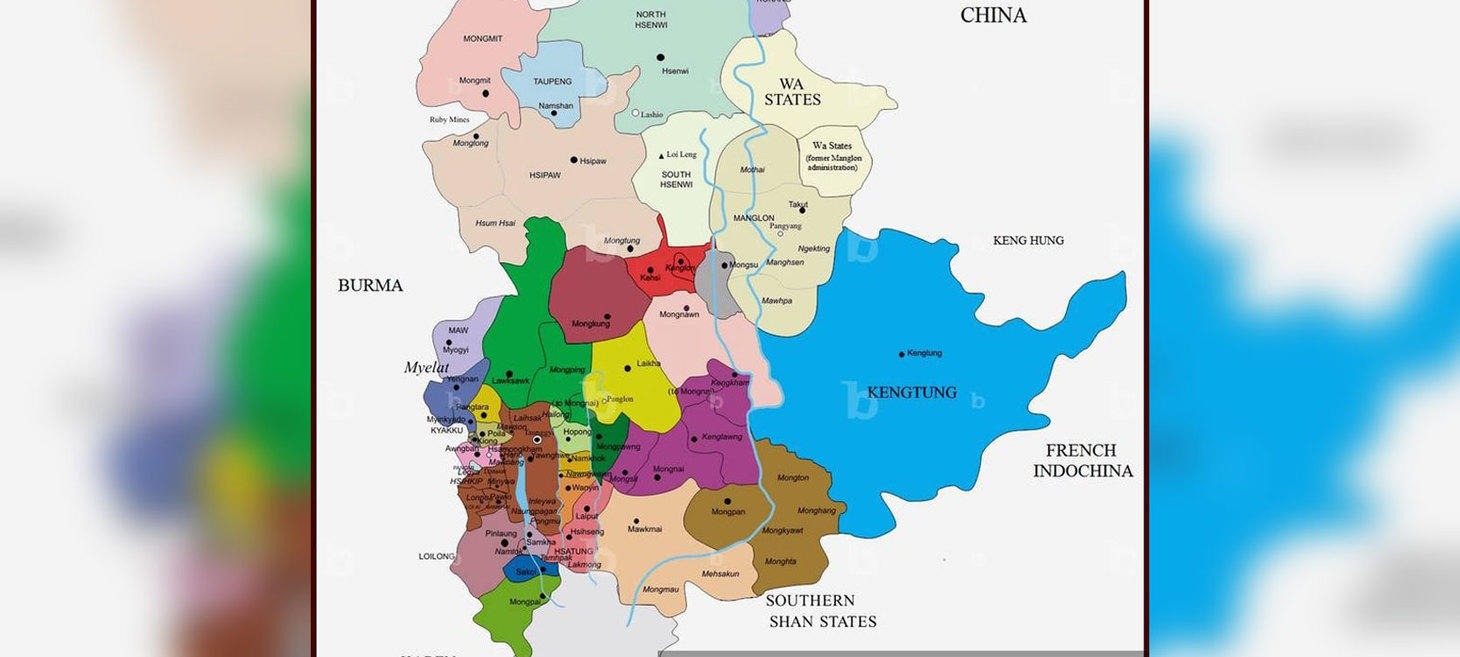
INTER-ETHNIC CONFLICT IN SHAN STATE: A bigger hurdle for the realization of federal democratic union
Shan State's diverse ethnic groups, which coexisted relatively peacefully in the past, are now experiencing increased inter-ethnic conflict, posing a significant challenge to the realization of a federal democratic union in Myanmar. Several ethnic armed organizations (EAOs), including the United Wa State Army (UWSA), Ta'ang National Liberation Army (TNLA), and Myanmar National Democratic Alliance Army (MNDAA), are vying for territorial control and political influence in Shan State. These EAOs, driven by ethnonationalism and territorial expansionism, are employing military might to redraw the political map in their favor, often at the expense of the original residents and the Shan majority. This approach contradicts the principles of a federal democratic union based on consent, democratic norms, and "unity in diversity". The situation is further complicated by China's involvement, which seeks to mediate peace negotiations and resume cross-border trade but faces challenges due to the incompatible goals of the EAOs and the junta.
Foreign Affairs
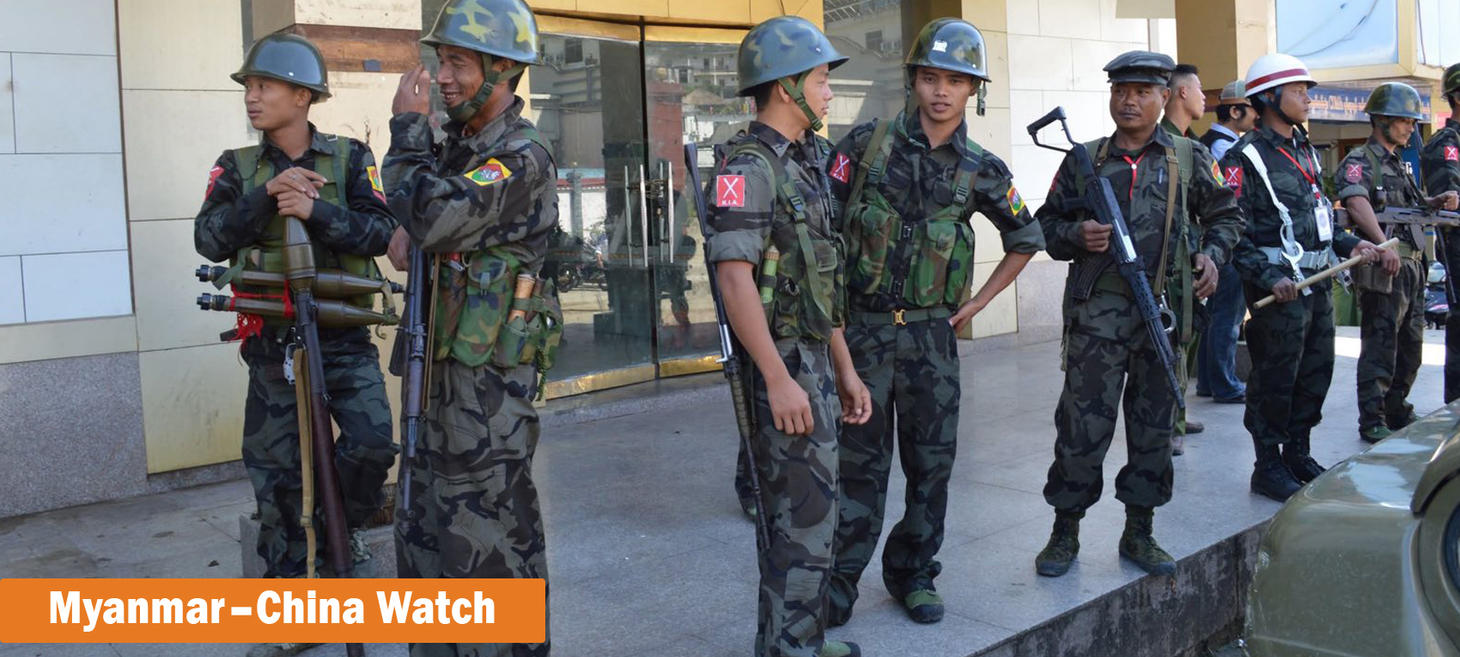
China Urges Kachin Rebels to Stop Fighting Myanmar Junta
China is urging the Kachin Independence Army (KIA) to halt its offensive against the Myanmar junta in Kachin State to safeguard Chinese investments, including rare earth mines. Following the KIA’s capture of most of Kachin State, including the rare-earth mining hub of Pangwa, China has called for a ceasefire and political dialogue between the KIA and the junta. Beijing reopened border crossings with Kachin State to appease the KIA, which now controls the flow of rare earths, a vital resource for China’s industries. This situation highlights the complex dynamics in Myanmar’s conflict, where China’s economic interests influence its approach to the junta and ethnic armed groups. The KIA's control of rare earth mines, a resource vital for China's industries, provides them leverage in negotiations and potentially disrupts China’s dominance in the rare earth market. China's attempts to mediate peace and secure its investments illustrate its significant influence in the region. This development aligns with the broader trend of the junta's weakening grip on power, as evidenced by recent territorial losses to anti-junta forces in regions like Rakhine, Kachin, and Chin States.
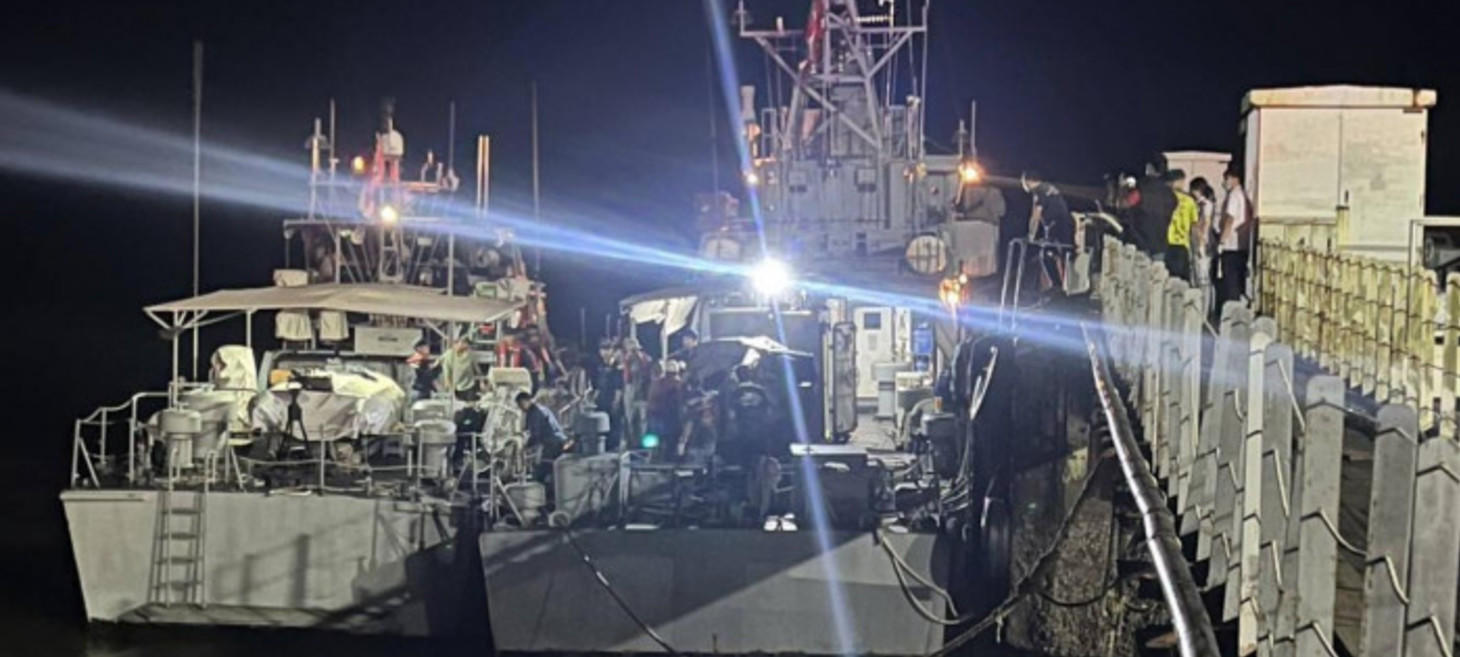
Assad's fate haunts Myanmar junta
The recent overthrow of Syrian President Bashar al-Assad serves as a cautionary tale for Myanmar's military junta, led by Senior General Min Aung Hlaing. The article draws parallels between the two regimes, highlighting how overconfidence and oppression can lead to downfall, even for long-standing authoritarian governments. Since the 2021 coup, Myanmar has faced international scrutiny for its human rights abuses, with resistance groups gaining control of nearly half the country. The piece emphasizes the critical roles of neighboring countries like Thailand, China, India, and Bangladesh in influencing Myanmar's future, as well as the involvement of Russia and the United States. It suggests that Myanmar's leadership could avoid Assad's fate by engaging in meaningful political dialogue with ethnic armed organizations, as outlined in the ASEAN Five-point Consensus. The article also discusses Thailand's unclear policies towards Myanmar, the refugee crisis in Bangladesh, and the strategic interests of China and India in the region, ultimately urging Gen Min Aung Hlaing to learn from Assad's mistakes and consider negotiations to prevent further chaos and resistance.
Humanitarian
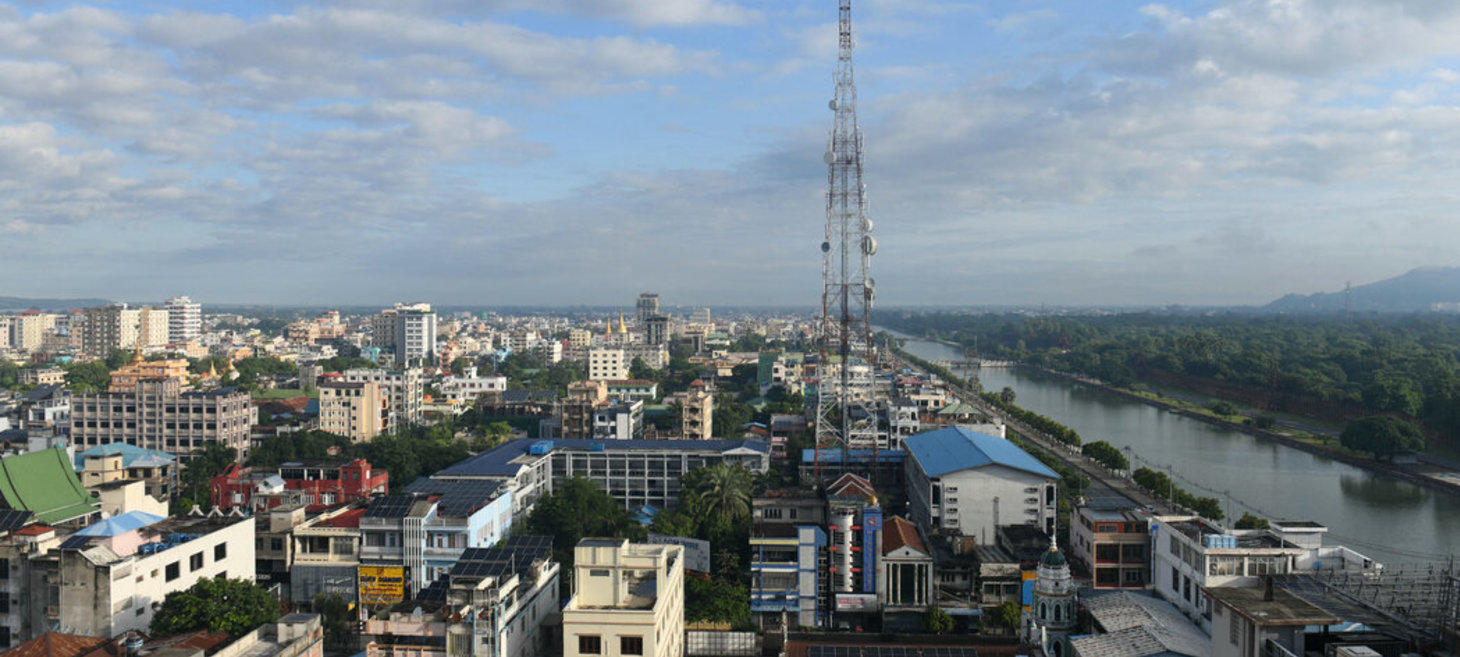
Myanmar’s War Has Pushed Doctors and Nurses Into Prostitution
The coup in Myanmar in February 2021 has led to a severe economic downturn, pushing many educated women, including doctors, nurses, and teachers, into prostitution as a means of survival. The economic crisis, marked by soaring inflation, power shortages, and the devaluation of the kyat, has left nearly half of the population in poverty. Women like May, a doctor, and Zar, a nurse, have turned to sex work to support their families, facing not only financial desperation but also the stigma and legal risks associated with prostitution. The situation is compounded by the military's actions, which have not only displaced populations but also destroyed livelihoods, making prostitution one of the few viable options for income. The rise in prostitution reflects a broader societal impact of the ongoing conflict, where women, already marginalized by lower wages and higher unemployment rates, are disproportionately affected by the economic fallout.
Politics
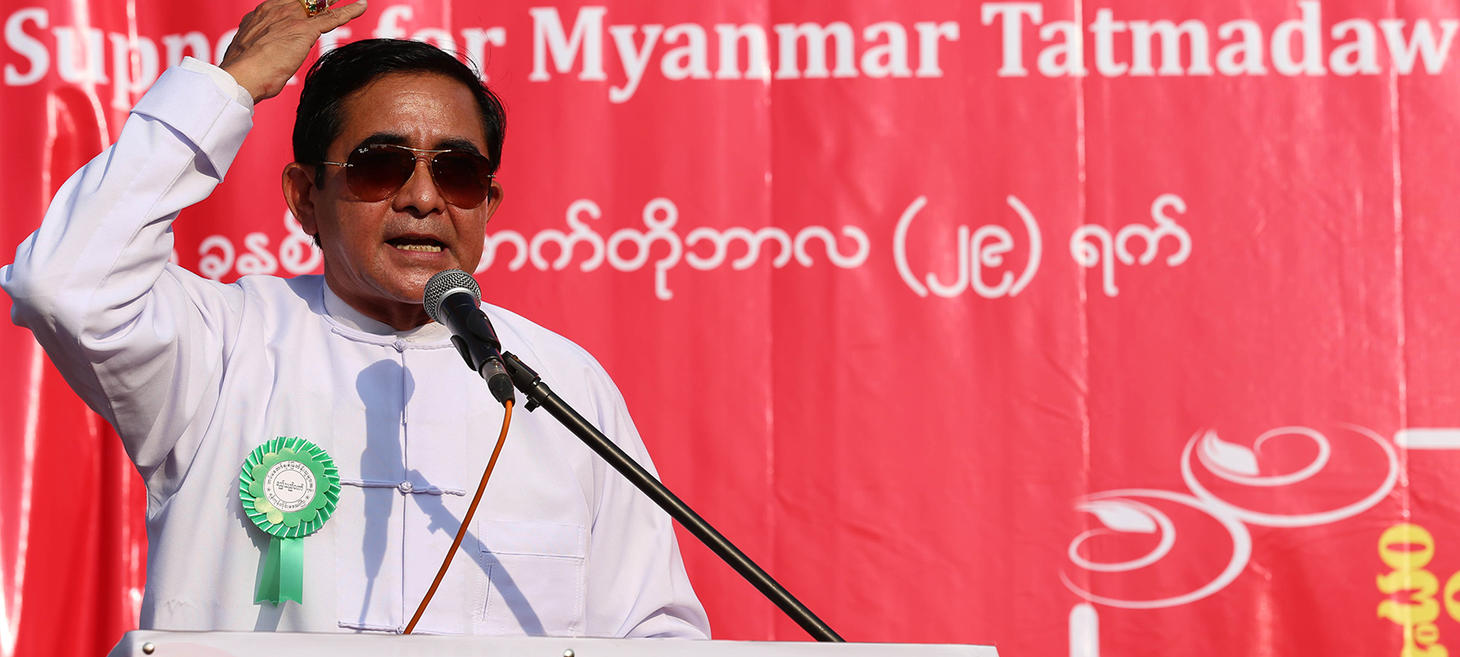
‘Bullet’ Says All Political Parties Must Back Myanmar Military
The Myanmar military has issued a directive stating that all political parties must support the military's actions and policies, effectively demanding allegiance to the junta. This move is seen as an attempt to consolidate power and suppress opposition following the 2021 coup, with the military likely aiming to legitimize its rule by co-opting or neutralizing political entities that might challenge its authority.
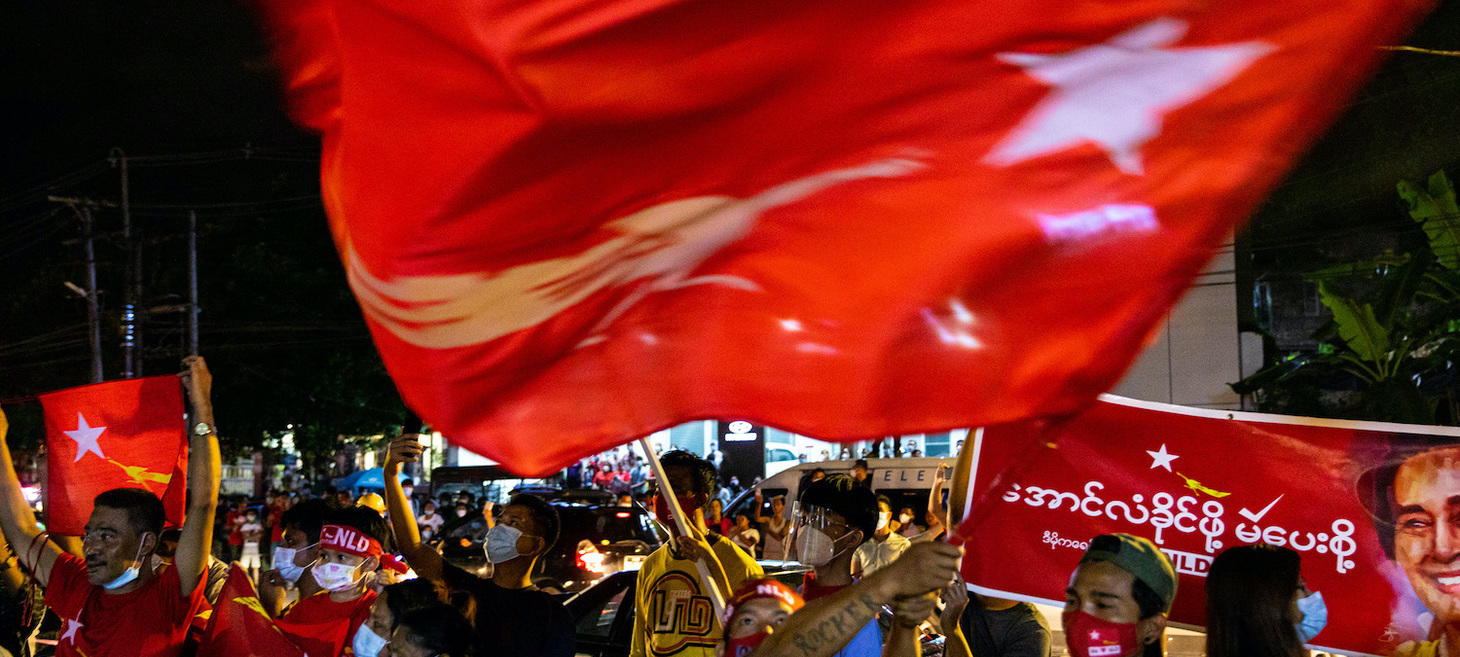
The fighting peacock: Myanmar’s NLD on the front line
Since the 2021 military coup in Myanmar, members of the National League for Democracy (NLD) have taken diverse paths, with some, like Ko Nay Zin Latt, transitioning from political roles to armed resistance against the junta. The coup led to the arrest and torture of many NLD members, including senior figures like Aung San Suu Kyi, and the vandalism of party offices. In response, some NLD members have joined the National Unity Government and People's Defense Forces, while others have taken civilian roles in resistance efforts. Despite the junta's plans for new elections, the NLD rejects these as illegitimate, maintaining that true political resolution requires the involvement of Aung San Suu Kyi, whose health and imprisonment remain a concern. The party continues to face challenges, including the loss of leaders and the need to cultivate new leadership, but remains committed to its democratic ideals and the public's support.
Sanctions
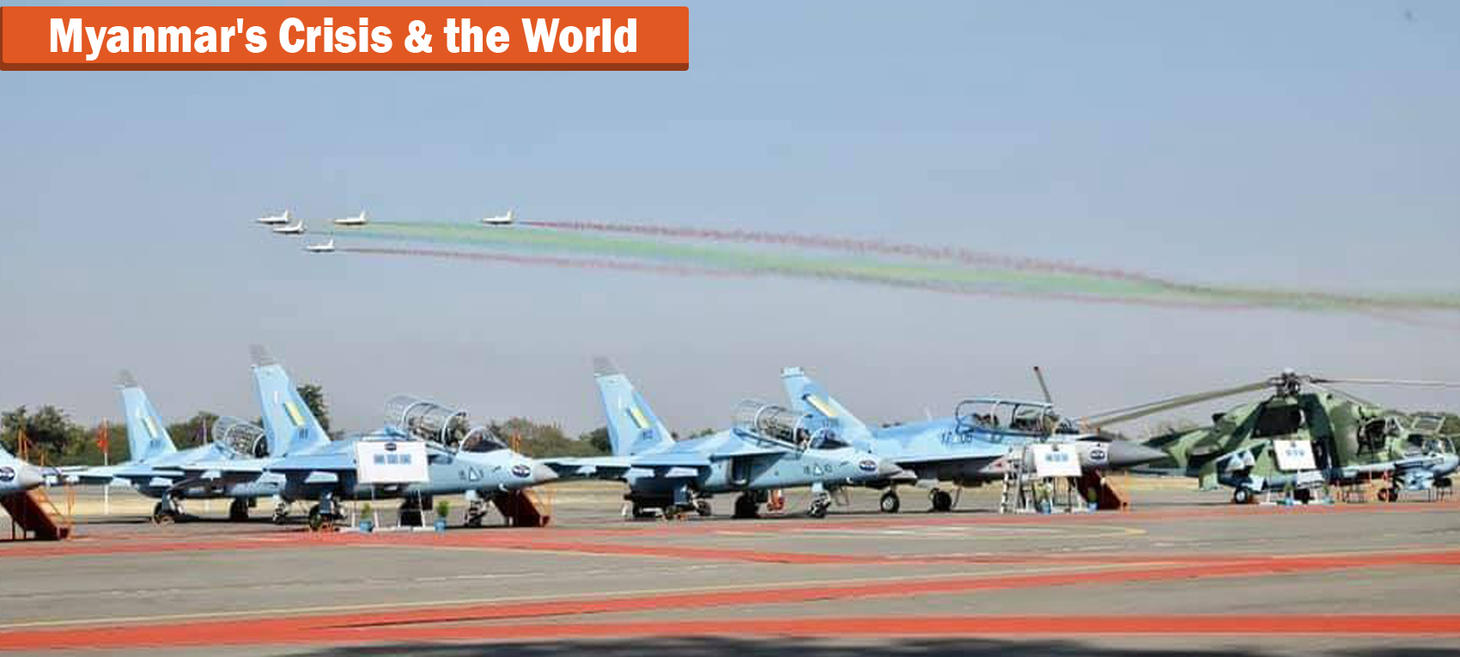
US Sanctions Myanmar and Russia Firms Arming Junta
The US Department of Commerce has imposed sanctions on two Myanmar companies, Sky Aviator Company Ltd and Synpex Shwe Company Ltd, and two Russian companies, Aviasnab LLC and Joint Stock Company Gorizont, for their role in supplying arms to the Myanmar junta. These sanctions are part of a coordinated international effort to pressure the junta and curtail its ability to carry out attacks against civilians. The junta has been increasingly reliant on airstrikes, which have resulted in significant civilian casualties and damage to infrastructure. The US sanctions follow similar actions by the European Union, the United Kingdom, and Canada in October 2023. These sanctions reflect the growing international concern over the junta's human rights abuses and its continued use of violence against the people of Myanmar. This development aligns with the broader trend of the junta's weakening grip on power, as evidenced by the recent territorial losses to anti-junta forces in regions like Rakhine, Kachin, and Chin States, as well as the increasing economic hardship and fuel shortages faced by communities under its control.
United Nations
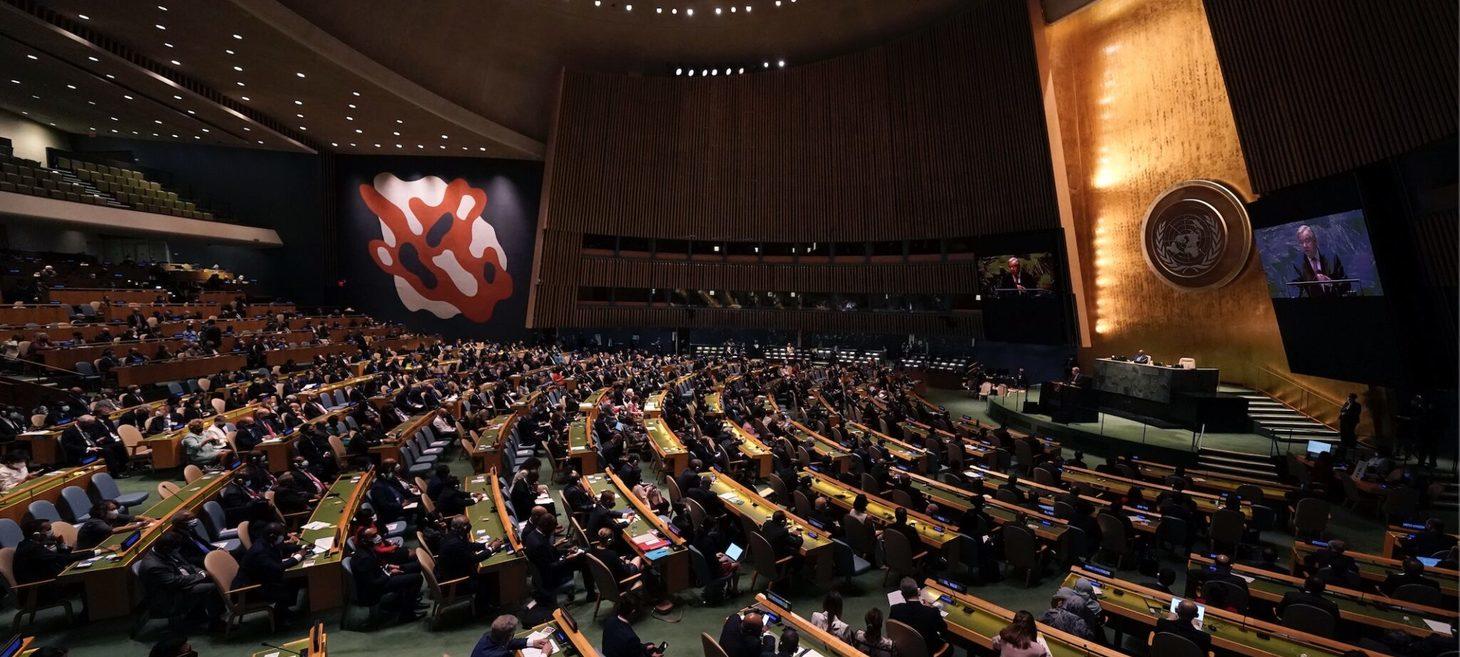
United Nations concerned over increased fighting in Myanmar
The Arakan Army (AA) has escalated fighting in Myanmar, causing concern for the United Nations due to increased civilian suffering and displacement. The AA's recent capture of a key region along the Bangladesh border, including the junta's Border Guard Police Battalion No. 5 in Maungdaw, signifies their growing control in Rakhine State. This advance aligns with a broader trend of anti-junta forces gaining ground against the Myanmar military, as seen in previous victories in Kachin and Chin States. The UN Secretary-General has called for all parties involved in the fighting to protect civilians and avoid escalating intercommunal hostility. The AA’s success, coupled with the junta’s weakening grip on power, suggests a potential turning point in the conflict.